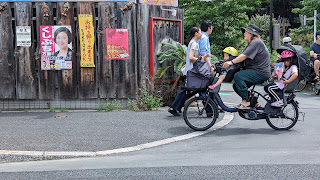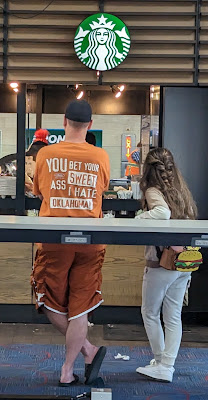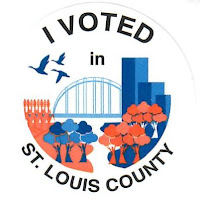When I lived in Hong Kong, I found it amusing that visitors
would often and repeatedly comment on how striking they found the clusters of
skyscrapers of housing estates. So I find it amusing, now, that on the ride in
from the airport, I, too, found the clusters of 30-plus story skyscrapers
notable. The fact that I notice these buildings which I once took for granted
shows that I no longer belong in Hong Kong. And yet, everything seems so
familiar, like I never left.

The Covid protocols are a mixture of the efficient and nonsensical.
I was tested by PCR test 4 times: on arrival, and 2, 4 and 6 days later. Each
time, I received the results at around 8:30 pm, which is the time they notify people
who have been tested before noon. I don’t know why the notifications are sent
out as a batch and are not sent out as they are received. In addition, I had to
take a Rapid Test every day and post the results (honor system). Half of these tests, then, were duplicating the
PCR test. I tried to make it more useful by doing the Rapid Test in the
evening, since I took the PCR test in the morning, but that meant I got the
results of both tests at about the same time.
The PCR testing process itself was amazingly fast. I simply
walked in, showed the staff member my Hong Kong ID and the appointment confirmation SMS
text message on my phone. The staff person, who was behind a plastic barrier,
entered my ID number and a code number from the SMS text on their keyboard, and
my personal particulars (including my phone number) then appeared on a screen
that was set facing me (none of the silly swiveling of the screen as in
doctors’ offices in St Louis). She gave me a vial, which I then took down a
line about 20 meters, and a “dispatcher” told me which of about 20 cubicles
(temporary cloth medical stations) to go to for my test. Each time I arrived,
the tester was still finishing up from the previous test and putting on new
gloves. They took a swab of both sides of my nose, and with a second swab took
a sample from my throat (“Say ‘Ah’”), and then, “You’re done, thank you” and I
could leave. I don’t think it even took 3 minutes.
.jpg)
In theory, everyone entering a store or building has to scan
a QR code on their “LeaveHomeSafe” app, which brings up the visitor’s health
status in a QR code. Until a person’s QR code is blue, one cannot eat in a
restaurant. (A friend who has resisted getting a cell phone for years was finally
forced to get a smart phone!) I found that while restaurants followed this
faithfully, most stores and buildings ignored it. I entered a Watson’s pharmacy
and saw the QR code and scanner at the door but noticed that no one was using
it. On the other hand, when I entered the Chinese University Library, a staff
member was at the barrier where you scan your university ID to enter, and she gently
called me back to have me sanitize my hands. (In my defense, I did not
recognize the new, alcohol-spraying hand sanitizer as a sanitizer, and plus,
didn’t we discover that Covid spreads not from contact by in the air?).
 |
| Surgical mask holder |
Everyone, and I mean everyone, wears a mask. The only
exception is when exercising, and on the beach. People walking on a promenade
along the water, which could technically be considered exercising, were wearing
masks.
Hong Kong residents also have a handy plastic mask holder,
which allows you to fold a surgical mask and put it in your purse or pocket
while you eat in a restaurant. I also discovered a "touchless elevator pad"
Days before leaving for HK, I received the Congressional-ExecutiveCommission on China report
on human rights in Hong Kong titled Hong Kong’s Civil Society: From an Open City to a City of Fear. As a cover letter put it:
The report, entitled Hong Kong’s Civil Society: From an Open City to a City of
Fear, draws on interviews with 42 current and former
members of Hong Kong’s civil society and details how the draconian enforcement
of the National Security Law crushed democratic institutions and a once vibrant
civil society in Hong Kong.
The report is depressing reading, describing the jailing of
politicians and activists for organizing a primary (which the government claims is “subversion”), the disbanding of many NGOs, children coming home saying
their teachers told them to report if parents criticized China’s flag, and
journalists forced to leave because of police harassment.
 |
| Touchless elevator pad |
In contrast to the report, which focuses on the worst cases,
I found people trying to live a normal life. Some professors have left Hong
Kong because of the political situation and the National Security Law, but it
has not been a mass exodus.
Recent statistics show 1.6% of HK’s population (116,000people) left HK in the past 12 months (
see here for more analysis on emigration and Covid departures). Professors that remain try to continue teaching as before; since they taught
critical thinking and presented different sides of issues, and not one side, they see no need to change their approach. Especially because many courses
still have to be offered on Zoom, and so are recorded, teachers also warn
students to be cautious, but one colleague noted that some students do not
hesitate to talk about what they did in the protests, despite teachers' warnings.
One friend, who had been quite supportive of the protests
when I saw him three years ago (and probably would still be considered
“yellow”), has traveled to the UK for work and commented that the Hong Kong
friends who have emigrated are, in his view, overly negative on Hong Kong. It seems
everyone needs to justify their choice: those who stay say it is not so bad,
those who left emphasize how much it’s changed and how bad it’s become.
Now that the protests have been suppressed, perhaps it is
easier to add some nuance, and not see them in simple bipolar terms of good
versus evil, or democracy versus autocracy. Already in 2020, a special section
in the anthropology journal HAU (issue 10[2]) offered some nuance on the protests. Many of the protesters were xenophobic and
anti-Mainland Chinese, and a large number loved Trump (because of his
anti-China stance). And though authorities will not admit it (because they
“won”), much of the violence was caused by the government’s intransigence and by
the police. The violence from a minority of the protesters probably doomed the
protest movement.
I can see that people who, for family or work or other
reasons cannot or do not want to emigrate, are coming to terms with the new
reality. One Chinese friend (who is my age and who had emigrated to Australia in
the 1990s to get his citizenship and then returned to Hong Kong) was surprised
that his sons’ friends all supported the protests. He is relatively moderate and sympathized with aspects of the protests,
but the protest movement appealed especially to youths. Yet, neither he, nor
his sons (who graduated from university in Australia) are considering moving to
Australia. My friend said he is disgusted with the “Mainlandization” of the
government, with officials now speaking like CCP officials. He commented that because they did not do so right after 1997, when perhaps it could have been
logical to make such a change, the patriotic language and public service
announcements on TV in 2022 are quite jarring. But he’s not leaving.
Another young friend, educated in the US, complained bitterly of the government bureaucracy and rigidity with Covid regulations, but he admitted he would not leave Hong Kong, because his skills and bilingualism are only an advantage in Hong Kong.
The fact is, we all live in flawed societies. I live in a
city that still has a gaping racial divide, where White kids in the suburbs go
to excellent public and private schools while Black kids in north St Louis go
to schools that in the recent past were so bad that the state had to take themover. Guns are so common that I sometimes hear shots fired at night. On the social network NextDoor, I read last
week that two teenagers drove up to a gas station near my neighborhood, and one
of them jumped into a car and stole it (here is a video of a similar incident at the same station). One of the first replies on NextDoor
was that the owner should have had a gun! (Right, so she could shoot her own
car and perhaps kill the teenager and maybe some innocent person walking by.) Today
there was a mass shooting in a St Louis high school: three dead, six injured. I
live in a country that is also entering a deeply xenophobic phase, where minorities
are attacked and immigrants who have worked here (usually also paid income
taxes) for decades have no path to citizenship. I live in a country where
supposedly intelligent people continue to assert, without any evidence, that
the 2020 election was stolen from Trump (despite the fact that Republicans did
well in all the other races). I live in a country that claims to be a democracy
and yet corporations and the wealthy can spend unlimited amounts in political
ads and lobbying (see e.g. Leonard Leo’s $1.6 billion fund). And I live in a country where most
people are going to vote for their tribe (red or blue) rather than based on the
qualifications and policy proposals of candidates.
Americans like to think that the US is such a great country
that everyone wants to come here, but according to a report titled Caught in the Crossfire: Fears
of Chinese-American Scientists, government harassment of scholars of Chinese descent has led to an exodus:
“The China Initiative caused panic
and an exodus of senior academic researchers of Chinese descent in the US.” The
number who dropped their American academic or corporate affiliation in 2021 in
favor of a move back to a Chinese institution jumped by 23 percent over 2020.
In 2021, 1,500 Chinese scholars who were educated in the United States left to
go back to China."
Many Americans seem to believe the political rhetoric that
the US is the greatest country in the world, and believe everyone wants to come
to America. In fact, the vast majority of people want to stay home close to family and friends, and most
refugees who come to America are driven out by violence and other problems at
home.
It is easy, from the US, to imagine it is hard to live in an
authoritarian place like Hong Kong. Yet many Americans are perfectly willing to
retire to an autocracy like Dubai:
A sunshine-filled city, Dubai offers an outstanding quality
of life for retirees. The city is famed for its friendly, multicultural
population and array of lifestyle experiences that put convenience at the
forefront – think on-demand home services and food delivery at the touch of a
button. (From Retire in Dubai website)
Retire amid sunshine and cheap labor; all you need is
US$500,000 in the bank, and an income of at least US$60,000 per year. Why worry
about freedom?
The CECC report quotes an anonymous professor as saying “Hong
Kong has changed from an open society to one in which people are gripped by
fear. And the fear is encompassing.” This is certainly true for some. But most
people are not activists or directly involved in politics. It is startling to
realize that for many people, life seems to go on as before. Even if they are
not happy about the National Security Law, what can they do?
 |
| Science Park: new buildings |
Because many people are carrying on as before, the changes
to Hong Kong will be gradual. Several people mentioned the way pro-Beijing
papers identify an issue or a person and then attack them in concert. That
riles up pro-Beijing supporters who add to the attacks online. That is how
Beijing tries to bring about change. It is a bit reminiscent of the Cultural Revolution, though less intense (although it is plenty intense if you are the target). But most Hong Kong residents are not
involved in politics and do not fear being attacked. The authorities have
created a flag raising ceremony at schools, and added required patriotic
education, but I heard ways that people get around them (e.g. by assigning a
few Mainland students to attend on behalf of a department). Over time, these ritual may have an effect, or they may become empty rituals.
Beijing is making Hong Kong students sing the national anthem; Americans sing the national anthem before all sports events. Does it have an
effect?
People get used to almost anything. My sense is that people
in Hong Kong will adapt. Like many in China, they will continue to hope that
the government will reform, will open up. They will push at the margins; no
street protests, but passive resistance, like the non-compliance with scanning the
QR code in entering buildings. Hong Kong survived fairly draconian crackdowns
under the British. Many hope it will survive this round of crackdowns, too.









.jpg)


